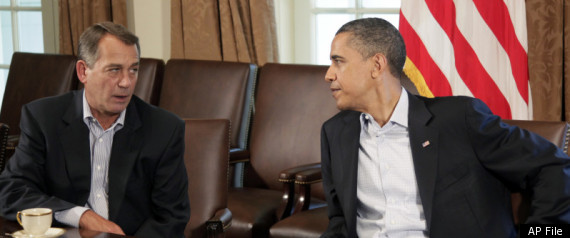
[fblike]
On September 7th, Australian voters went to the polls and returned the Coalition, which is an alliance of the Australian Liberal Party and the Australian National Part, to power for the first time since 2007. The Australian Labor Party suffered its worst electoral defeat in a century despite presiding over an economic boom that has enabled Australia to escape a severe global economic recession and the effect of financial crises in the United States and Europe. The prime minister-elect, Tony Abbott of the Coalition, was at one time deemed too radical and unelectable, but managed to convince Australians that carbon taxes and refugee issues needed swift attention to preserve Australia’s place as one of the strongest economies in the world and one of the powers in Southeast Asian affairs. Australia is often the “red headed stepchild” of extemporaneous speaking in the sense that it is often ignored by question writers since it does not neatly fit into geographic topic areas. Nevertheless, due to the country’s strategic alliance with the United States and its economic ties to China, it is an important country to know when assessing Asia-Pacific affairs.
This topic brief will provide some background information on the recent parliamentary elections, discuss the results of the election, and then analyze how the new Coalition government will deal with the major issues that affect Australia, both foreign and domestic.
Readers are also encouraged to use the links below and in the related R&D to bolster their files about this topic.
Read More
 1. Should the Indian government invest in ethanol?
1. Should the Indian government invest in ethanol?



 Today’s R&D covers the controversial Obamacare initiative, which begins its official roll out on October 1st.
Today’s R&D covers the controversial Obamacare initiative, which begins its official roll out on October 1st. Today’s R&D provides information on Golden Dawn, a neo-fascist group in Greece whose popularity has risen during the country’s economic crisis. The political group is under investigation for violent acts and the murder of a left-wing hip-hop musician. The Greek government is currently looking into banning the group.
Today’s R&D provides information on Golden Dawn, a neo-fascist group in Greece whose popularity has risen during the country’s economic crisis. The political group is under investigation for violent acts and the murder of a left-wing hip-hop musician. The Greek government is currently looking into banning the group.



 By October 1st Congress must pass legislation to fund the annual expenses of the federal government for the next fiscal year. If it does not, a government shutdown will ensue where many government operations will cease, although programs that do not receive their funding directly from the Treasury, provide for national defense, or conduct essential services will continue. Speaker of the House John Boehner (R-OH) hoped to avoid a showdown with the White House in what would be the first fiscal showdown since 2011, but Tea Party Republicans have pressured he and other members of the House Republican leadership to pass a spending measure that would fund the government in the short-term and deny funding for Obamacare, which is set to begin on October 1st with the opening of signups on state insurance exchanges. President Obama and Senate Democrats argue that the spending measure passed by the House is a non-starter and if a compromise is not reached by October 1st it would result in the first government shutdown since 1995-1996. The battle over the shutdown also touches on the nation’s credit rating, since the debt ceiling will have to be raised to avoid a potentially damaging default.
By October 1st Congress must pass legislation to fund the annual expenses of the federal government for the next fiscal year. If it does not, a government shutdown will ensue where many government operations will cease, although programs that do not receive their funding directly from the Treasury, provide for national defense, or conduct essential services will continue. Speaker of the House John Boehner (R-OH) hoped to avoid a showdown with the White House in what would be the first fiscal showdown since 2011, but Tea Party Republicans have pressured he and other members of the House Republican leadership to pass a spending measure that would fund the government in the short-term and deny funding for Obamacare, which is set to begin on October 1st with the opening of signups on state insurance exchanges. President Obama and Senate Democrats argue that the spending measure passed by the House is a non-starter and if a compromise is not reached by October 1st it would result in the first government shutdown since 1995-1996. The battle over the shutdown also touches on the nation’s credit rating, since the debt ceiling will have to be raised to avoid a potentially damaging default. Here is today’s premium R&D to accompany
Here is today’s premium R&D to accompany 
